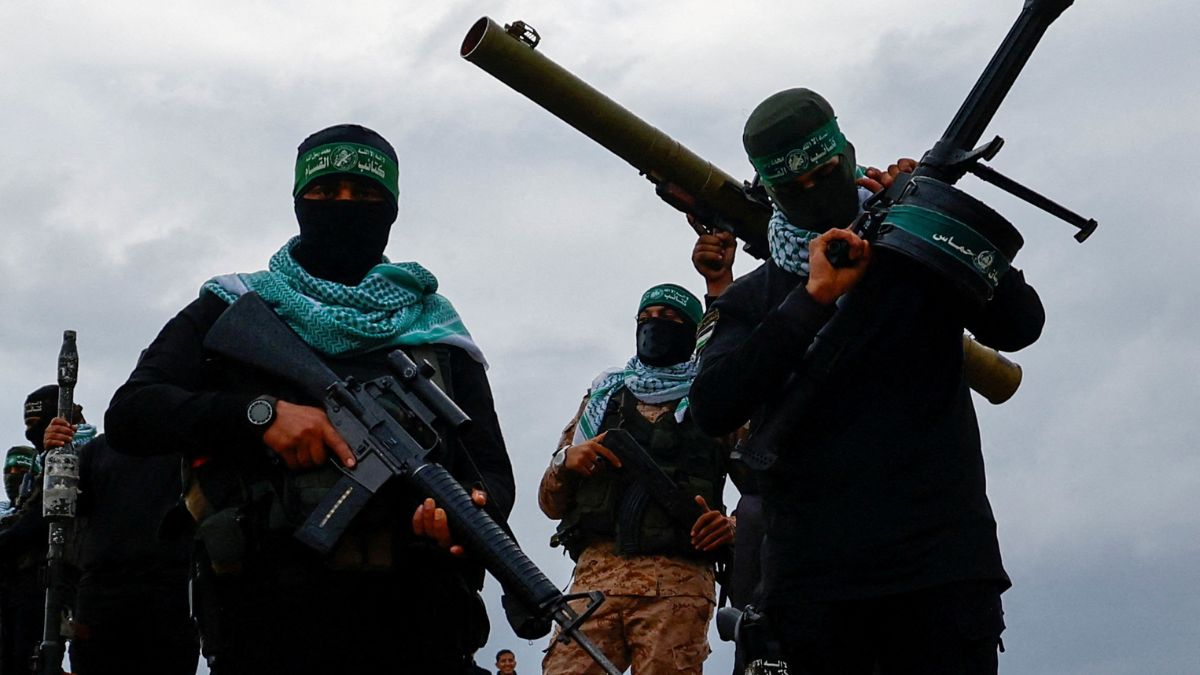

By Mantasha - Aug 03, 2025
Negotiations between Israel and Hamas stall over ceasefire and hostage release, with Hamas refusing to disarm until a Palestinian state is established. The failure of talks highlights the deep-rooted conflict and complex geopolitical context, posing challenges for the region's stability and economy.

Hamas via <a target="_blank" href="https://www.theweek.in/news/middle-east/2025/08/03/hamas-rejects-disarmament-amid-ceasefire-talks-slams-us-envoy-s-gaza-visit.html">theweek.in</a>
LATEST
Negotiations between Israel and Hamas reached an impasse last week, as the two parties failed to agree on a ceasefire and the release of hostages. The main sticking point in the discussions was Hamas's refusal to disarm until a Palestinian state is established.
Hamas, the militant group that controls the Gaza Strip, has been locked in a bitter conflict with Israel for decades. The recent talks were seen as a potential opportunity to ease tensions and bring about a cessation of hostilities. However, Hamas's insistence on linking disarmament to the establishment of a Palestinian state proved to be a major obstacle.
The geopolitical context surrounding the Hamas-Israel conflict is complex, with decades of unresolved issues and deep-rooted animosities on both sides. Experts suggest that Hamas's demand for a Palestinian state before disarming is reflective of their long-standing commitment to the Palestinian cause and their belief that armed struggle is necessary for achieving their goals.
The failure of the negotiations poses significant challenges for the region, as the prospect of continued violence looms large. The refusal to disarm also raises concerns about the impact on the economy and stability of the area. Without a breakthrough, the situation could deteriorate further, leading to more violence and instability in the region.